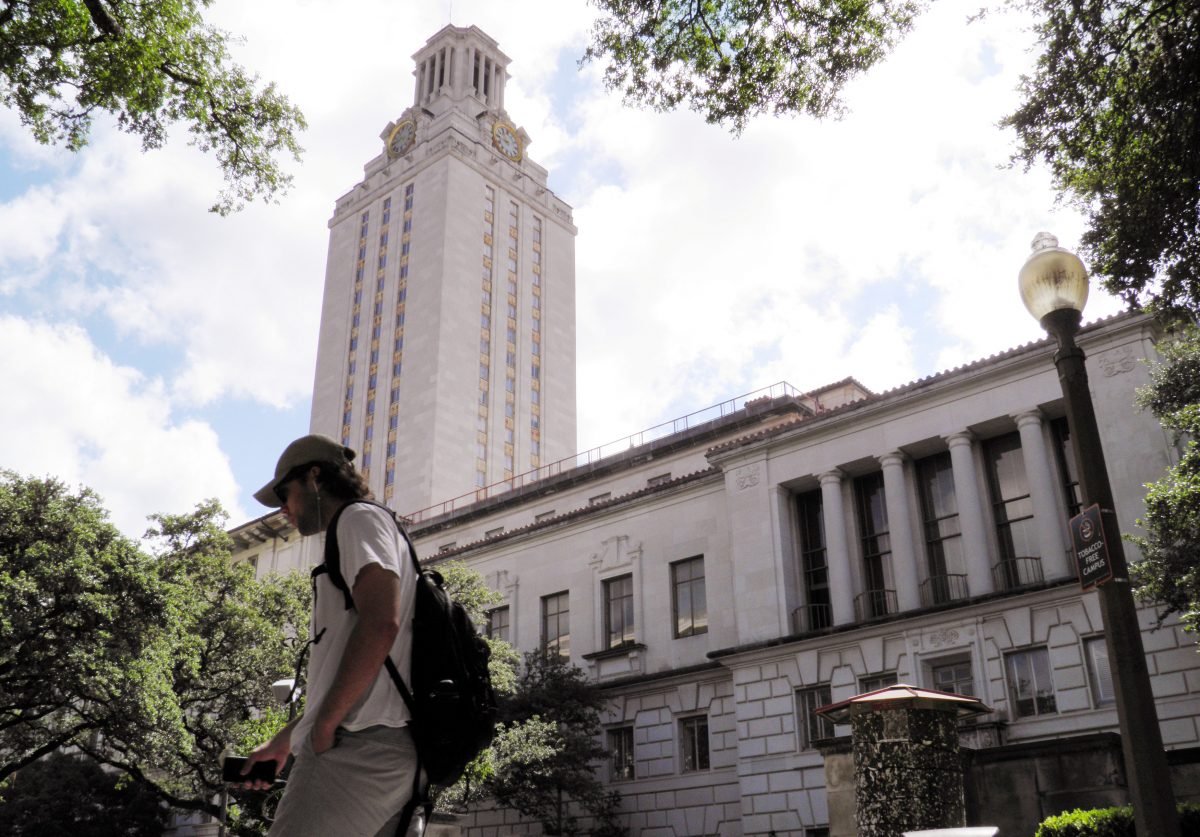UT Austin Spends Over $13 Million on Diversity, Equity, and Inclusion Salaries: Documents
The University of Texas at Austin spends more than $13 million on Diversity, Equity, and Inclusion (DEI) salaries for close to 200 jobs, according to documents obtained by The Epoch Times.
That’s enough money to fund 342 in-state students to attend one of Texas’ top publicly funded universities for a year, based on $35,000 in annual tuition.
The Division of Diversity and Community Engagement (DCE) at UT Austin paid 171 employee salaries totaling some $12.2 million, according to documents obtained through an open records request.
Another $1.4 million in salaries were paid to 14 associate deans called Coalition of Diversity Equity and Inclusion officers, according to the documents.
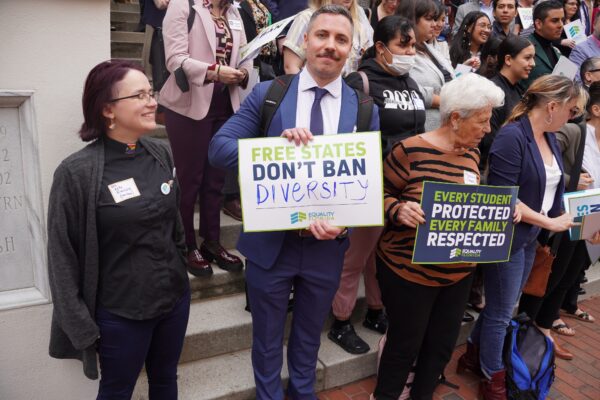
DEI Winning Limited Resources
UT Austin’s expenditures on DEI paint a picture of a vast network of workers dedicated to a contentious sociopolitical movement that has taken hold in America’s institutions.
Much of the money spent on salaries support what critics describe as “woke” programs based on social justice activism. Vast amounts of taxpayer money spent on DEI salaries demonstrate what detractors say is a bloated system siphoning money away from academics.
DCE supports multiple learning centers and programs throughout UT Austin. Positions at affiliated programs include the Hogg Foundation for Mental Health, Youth Engagement Center, Office for Inclusion and Equity, and even an elementary school that helps train future teachers to be well versed in the movement’s ideology.
The diversity division pays another $11.7 million for public charter schools to help children in crisis and UIL salaries, apparently unrelated to DEI.
Scott Yenor, a Boise State University political science professor, is senior director of state coalitions at the Claremont Institute, a conservative think tank.
Yenor told The Epoch Times that DEI had been woven into every facet of universities nationwide, making it difficult to determine how much public money is being spent supporting controversial political ideologies.
“Nearly every college has a dean that’s dedicated to it,” he said.

Yenor pointed to the costs of offering majors at UT Austin dedicated to DEI, such as African and African Diaspora Studies and Race, Indigeneity & Migration.
Another DEI major at UT Austin Texas is Women’s and Gender Studies, which includes classes to analyze the “social narratives of gender, race, and sexuality,” according to the school’s website.
Minors at UT Austin include Critical Disability Studies and Latino Media Arts and Studies, Yenor said.

Ideology Permeates Learning Centers, Programs Off and On Campus
DEI casts a long shadow at UT Austin, even reaching into elementary education. The university’s diversity division pays salaries at the UT Elementary School, an open-enrollment school serving pre-K to fifth grade.
DEI has been incorporated into the elementary school, which serves as a training and development site for education majors and others at UT Austin, according to information on the school’s site.
In 2018, the university-run school was awarded a “No Place for Hate Designation” by the Anti-Defamation League for committing to “anti-bias” activities and challenging “prejudice and discrimination.”
Anti-bias and anti-racism are part of DEI and CRT ideologies.
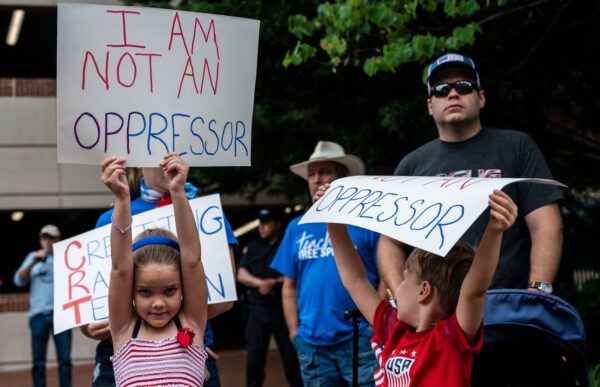
UT Austin describes anti-racism as acting against racism by “acknowledging personal privileges, confronting structures and acts of racial discrimination, and working to change personal, racial biases.”
DCE provides salaries for several centers. One is UT Austin’s Gender and Sexuality Center, which aims to “explore, organize, and promote learning around issues of gender and sexuality.” The center’s event calendar includes “Trans Thursdays” and “Feminist Fridays.”
It also funds the Multicultural Engagement Center, which houses six student-run agencies that present “peer-facilitated social justice and education trainings.”
Another funding recipient, the Center for Community Engagement, offers students the chance to learn outside the classroom, “focusing on service and social justice.”
Women in STEM (Science, Technology, Engineering, and Math) is an outreach network focusing on increasing science and technology uptake among girls and is funded by the DEI division. The website says the network involves 25 student organizations working “to advance gender equity and inclusion.”
The diversity division also pays salaries at the Hogg Foundation for Mental Health. According to the foundation, the group has been meeting with Texas legislative offices to achieve their priorities, which include equity, racial justice, and LGBT rights.
DEI administrators and workers tend to be well-paid at UT Austin.
Documents showed 28 employees making $100,000 or more annually, including 21 DCE workers and seven diversity coalition officers.
Octavio Martinez, senior associate vice president and director for the Hogg Foundation, was the top earner at $341,000, followed by Jenifer Maedgen at $246,000 as a senior vice president of DDCE.
The documents did not include the salary for the top DDCE executive, LaToya Smith, vice president for Diversity and Community Engagement.
Red State Colleges Aren’t Immune
The expenditures illustrate rampant DEI ideology on college campuses—even in red states like Texas.
The combined total for the Texas university’s DEI salaries rivals that of universities such as Ohio State. It was one of several prominent universities that made headlines for DEI salaries, employing 132 DEI administrators who paid $13.4 million in the 2021-2022 academic year.
Meanwhile, DEI funding at UF stands at around $5.3 million, according to the university’s student-run newspaper.
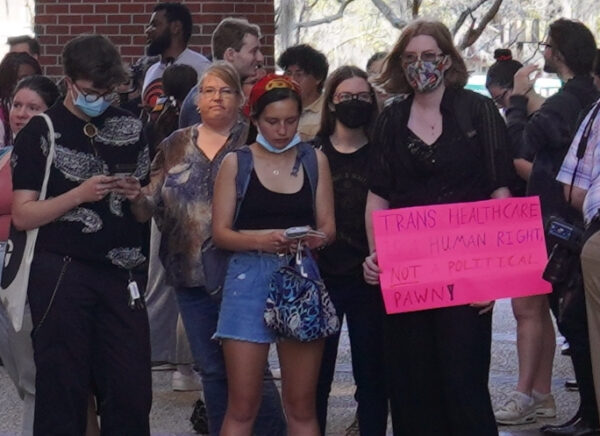
The entire Florida university system spent $34 million, according to a roundtable discussion in March held by Gov. Ron DeSantis, who signed legislation this month defunding DEI in state-run institutions.
Critics describe DEI, and the similar Critical Race Theory (CRT), as Marxist-based ideologies that divide people into oppressors or victims based on race and gender. The left-wing political theories push the narrative that America is an irredeemably racist nation and must be destroyed and rebuilt.
Supporters of DEI and CRT say the ideologies challenge the dominant narrative about America’s history and seek to make America more equitable by proactively attacking the systems that allow discrimination against minorities.
UT Austin was also the subject of a report by Christopher Rufo, a senior fellow at the Manhattan Institute, who documents and analyses CRT and DEI policy implementation in public schools and universities.
Rufo’s report shows how DEI ideologies now permeate the culture at UT Austin and Texas A&M University.
At UT Austin, Rufo noted the Department of History and College of Communication promoted the idea that “white supremacy” was an issue that must be “dismantled.”
Texas Could Follow Florida with DEI Ban

Like Florida, a number of Texas lawmakers are moving to remove DEI from its colleges.
Lt. Gov. Dan Patrick wants to eliminate DEI offices on college campuses. He made Senate Bill 17 a priority in the Republican-led Senate.
Gov. Greg Abbott’s office also issued a memo in February saying that DEI has favored some demographic groups to the detriment of others.
As of May 19, it appeared that SB 17 would make it to the finish line to become law after Democrats launched a fierce fight to stop the bill that lasted more than five hours.
SB 17 was modified by the House Higher Education Committee headed by Republican chair Rep. John Kuempel, which prompted complaints from some conservatives because the bill no longer allows attorney general oversight.

Kuempel also accepted an amendment allowing DEI employees with jobs eliminated by the bill to take similar paying positions elsewhere within the universities.
That means Texas would not see substantial savings from eliminating DEI salaries, and employees who administered DEI could remain within the universities.
Republican Steve Toth, a conservative Texas Freedom Caucus member, told The Epoch Times that he hopes to force a vote on the bill’s third reading to realign it with the stronger Senate version.
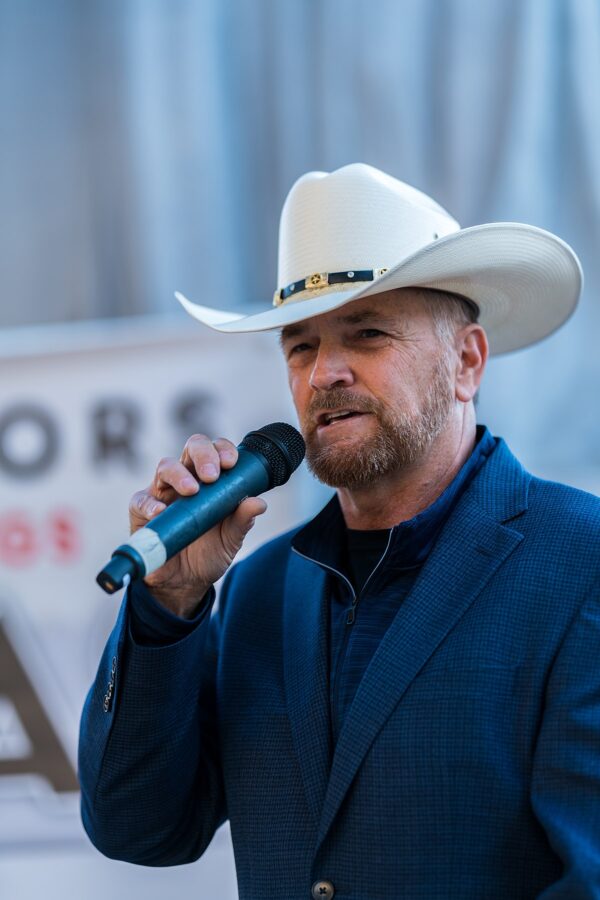
“While I’m happy for this bill, Texas needs to come back next session and address the culture of DEI,” Toth said.
The bill must return to the Senate, where House and Senate bill versions will likely be reconciled in a committee before heading to Abbott’s desk for a signature.
Kuempel did not respond to requests for comment from The Epoch Times.

